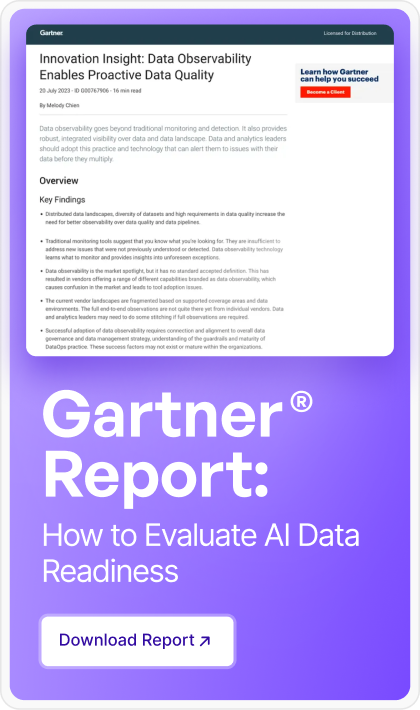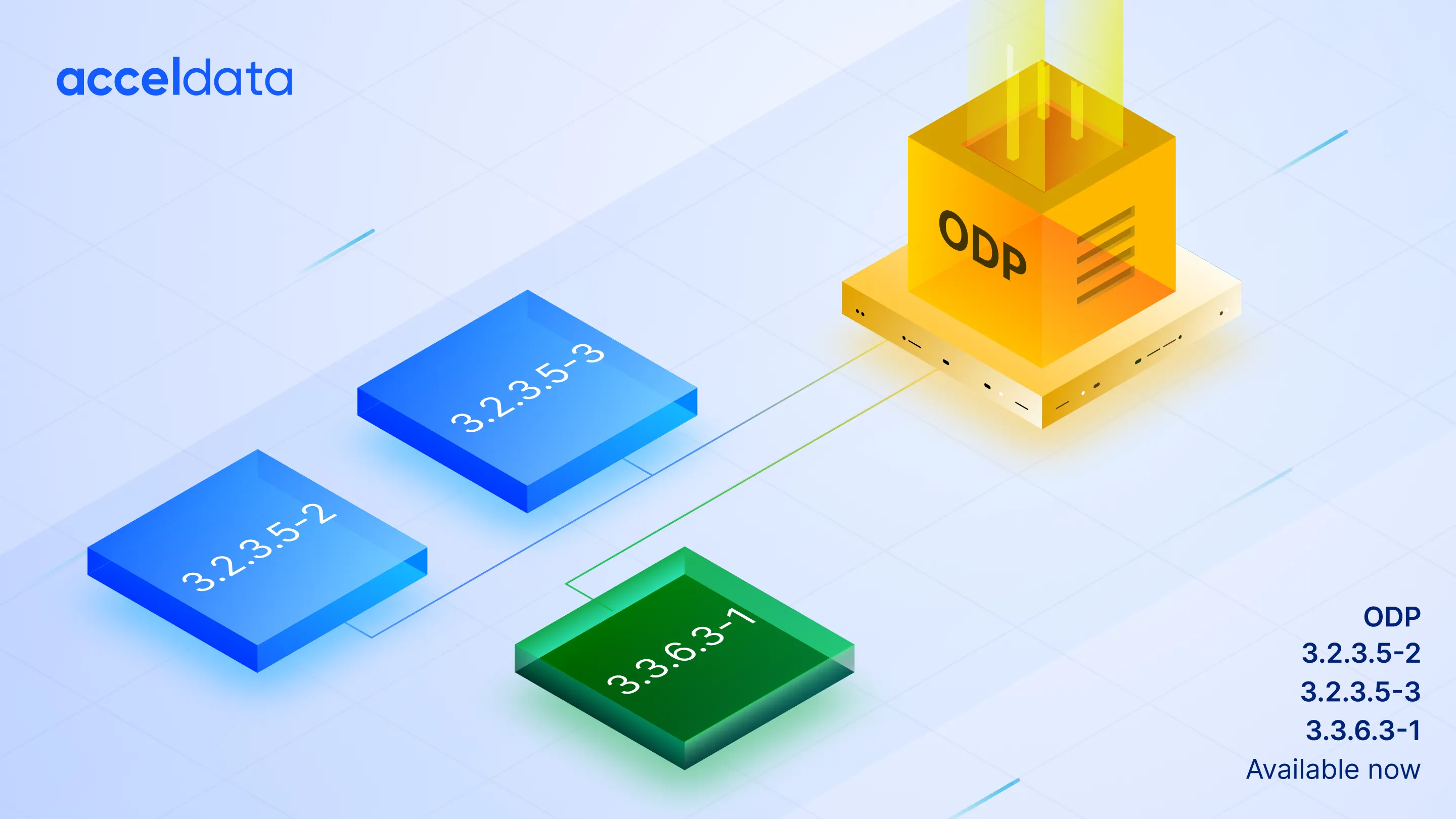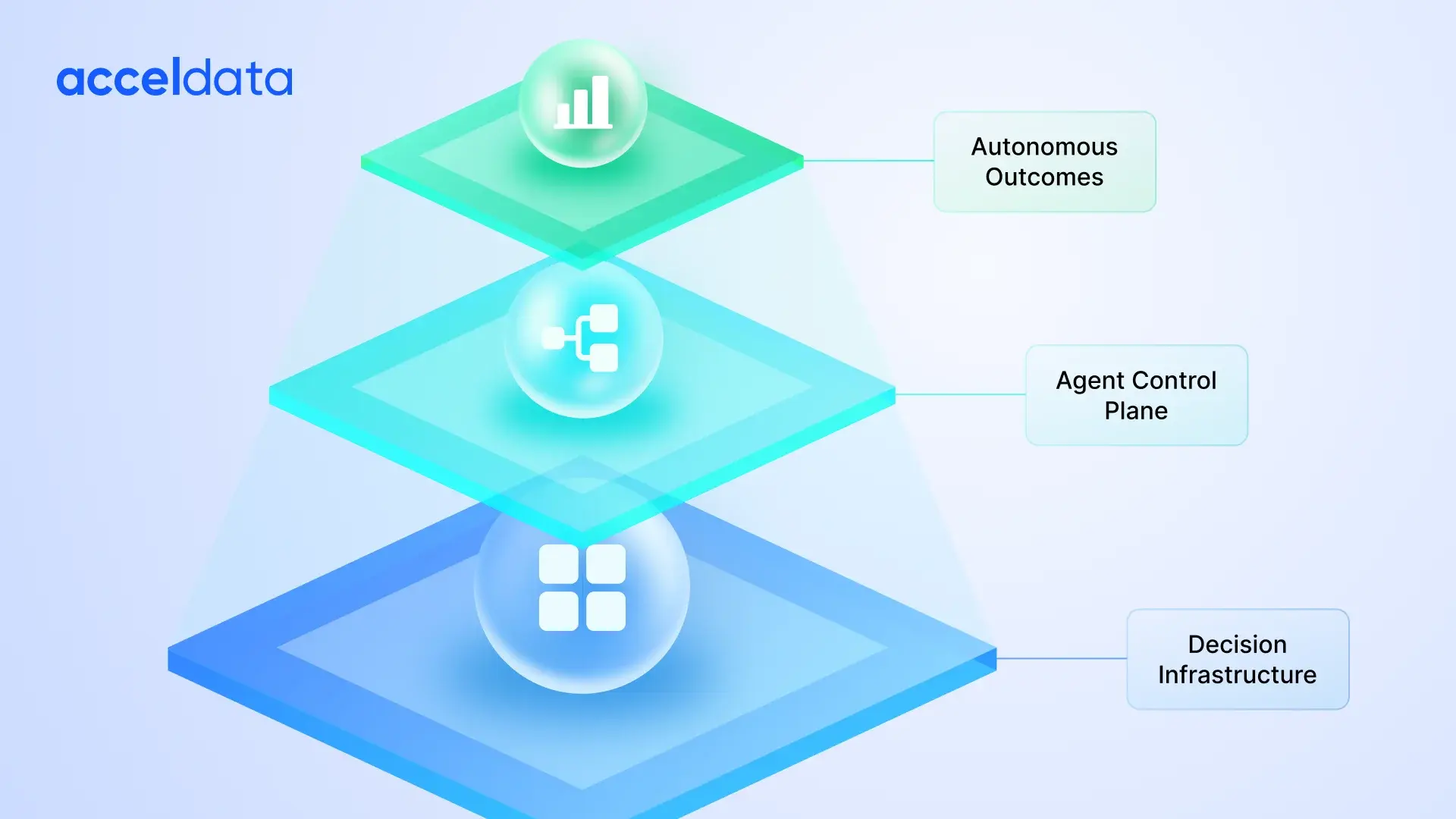Data chaos is no longer just a technical hurdle. It’s a barrier to growth. A 2023 Cisco survey revealed that 81% of organizations have data scattered across silos, making it harder to unify systems, scale analytics, and adopt advanced operations like AIOps. At the same time, poor data quality is draining enterprise value. While traditional AI solutions have helped identify issues, they often lack the context-aware intelligence to recommend actionable solutions.
AI in data management, especially through agentic systems, goes beyond basic anomaly detection. It autonomously prioritizes issues based on business impact and recommends remediation, transforming how enterprises leverage their data assets.
This article explores five transformative ways artificial intelligence is revolutionizing data management, moving beyond simple automation toward truly autonomous systems. From context-aware intelligence to predictive risk mitigation, these capabilities are helping forward-thinking organizations turn their data challenges into competitive advantages.
How AI in Data Management is Evolving: The Agentic Approach
Traditional data management solutions excel at detecting anomalies and issues but stop short of providing the contextual intelligence needed to prioritize and resolve them. Agentic data management platforms add a layer of autonomous reasoning and decision-making capabilities that transform how enterprises handle their data assets.
Unlike traditional data management artificial intelligence tools that operate in isolation, agentic systems leverage past learning, situational context, and business priorities to provide truly autonomous data management. This represents a fundamental shift from reactive to proactive data operations.
Evolution of data management approaches
5 Ways AI in Data Management is Creating Business Transformation
Integrating AI into data management fundamentally reshapes how enterprises extract value from their data assets. As organizations move beyond basic automation toward intelligent systems, five key transformations emerge that drive measurable business outcomes.
1. Context-aware intelligence that prioritizes business impact
Traditional data observability tools detect anomalies but leave prioritization to humans. Agentic data management systems understand the broader context of your business goals and can autonomously determine which issues demand immediate attention based on potential business impact.
Research published in the MIT Sloan Management Review notes that organizations implementing context-aware analytics solutions report substantial improvements in problem resolution times for critical data incidents. This contextual understanding comes from the system's ability to connect data quality issues with downstream business processes and revenue implications.
Example: A major financial services company would benefit from an agentic data management platform by experiencing significant reduction in critical data incidents. Such a platform should help identify and resolve problems before they affect business operations by prioritizing issues that directly impact customer-facing applications and revenue-generating processes.
2. AI-powered memory and reasoning for continuous improvement
Unlike traditional AI systems operating within predefined parameters, agentic data management platforms can recall past decisions, apply those learnings to new situations, and continuously improve their recommendations.
Example: A global e-commerce company would likely see value from an agentic data management solution that could identify patterns of minor data inconsistencies occurring during peak sales periods. By analyzing historical incidents and their resolutions, such a system should autonomously implement preventive measures before future sales events, helping avoid potential revenue losses. This self-learning capability means the system gets smarter with each interaction, building an organizational knowledge base that preserves insights even as team members change.
3. Unified multi-agent architecture for comprehensive data oversight
Traditional data management relies on disparate tools for different functions: data quality, data pipelines, and yet another for cost management. Agentic data management platforms deploy specialized AI agents collaborating across these functions while maintaining a unified view of the entire data ecosystem.
Organizations implementing centralized and integrated data strategies are better positioned to drive business outcomes through faster insights and improved operational agility. A unified architecture simplifies data workflows and ensures consistency in governance and compliance across environments.
These specialized agents work together, sharing insights and coordinating actions across data pipelines, quality metrics, governance policies, and infrastructure management while aligning with overarching business goals.
4. Autonomous operation across hybrid environments
Modern enterprises typically operate in hybrid environments spanning on-premises systems, multiple clouds, and virtual data centers. Agentic data management platforms can autonomously navigate these complex ecosystems, applying consistent governance and quality standards regardless of where data resides.
Example: A multinational manufacturing company with operations across multiple countries would benefit from harmonizing data operations across its hybrid infrastructure. An agentic platform should autonomously adjust data processing workflows based on regional compliance requirements and infrastructure capabilities, improving both governance efficiency and data quality metrics.
5. Proactive risk mitigation through predictive intelligence
Rather than simply flagging issues after they occur, agentic data management platforms can identify potential problems before they impact business operations. By integrating AI and ML in data management, enterprises can shift from reactive problem-solving to predictive, autonomous prevention. These platforms analyze patterns across historical data and current system behaviors to predict and prevent data issues before they cascade into major disruptions.
Organizations that implemented predictive analytics for maintenance planning reported up to a 70% reduction in time spent on data analysis and preparation, and a 42% reduction in time managing model lifecycles. These improvements translated into more reliable and proactive operations across the enterprise.
Example: A healthcare provider would find value in an agentic data management solution that could identify potential data governance gaps in their patient records system. Such a system should predict compliance issues before they become critical and automatically suggest remediation steps, helping prevent regulatory penalties and preserve patient trust. This application demonstrates how AI in clinical data management should transform compliance processes while improving data reliability.
AI Data Management Tools
AI data management tools currently go beyond simple automation; they integrate sophisticated machine learning models and large language models to simplify discovery, enhance security, and streamline governance processes. Organizations across industries are leveraging these capabilities:
Business Impact of Agentic Data Management
Organizations adopting agentic AI in data management are realizing significant improvements across key performance indicators, translating into tangible business outcomes:
1. Reduced time spent troubleshooting data pipeline issues
AI-powered predictive maintenance systems are helping organizations significantly reduce unplanned downtime. By analyzing production and operational data, these systems can anticipate failures before they happen. This reduces the need for manual troubleshooting and helps maintain smooth data operations.
2. Improved data quality scores across critical business domains
Agentic AI systems can analyze highly complex datasets with a level of precision that manual methods often cannot match. This leads to much more reliable and accurate data, especially in sensitive domains like healthcare and finance, where data quality directly impacts outcomes.
3. Fewer data-related outages affecting business operations
AI-based monitoring tools can detect early warning signs of system issues, such as unusual behavior or data inconsistencies. Catching these problems before they escalate allows teams to intervene early and prevent broader disruptions to operations.
4. Faster time to insight for business intelligence initiatives
Agentic AI platforms can process large volumes of data and deliver insights almost immediately. This gives business teams the ability to act on real-time trends and make better decisions without waiting for traditional analysis cycles to complete.
5. Lower data management operational costs
By automating repetitive maintenance and data-handling tasks, organizations are cutting operational expenses and improving team efficiency. This allows resources to be redirected toward strategic projects that drive growth and innovation.
These applications demonstrate how AI in data management creates measurable business value through automation, prediction, and contextual intelligence, setting the foundation for fully agentic systems.
Implementing Agentic Data Management: Key Considerations
When evaluating agentic data management solutions, enterprises should consider these critical factors:
- Integration capabilities: Look for solutions that connect seamlessly with existing infrastructure through pre-built connectors and robust APIs for databases, data lakes, and BI tools.
- Customization flexibility: Choose platforms allowing agent and policy customization to address unique industry regulations, business processes, and strategic priorities.
- Governance and security: Ensure the platform provides clearly defined boundaries with robust controls and comprehensive audit trails for all autonomous actions.
- Human-in-the-loop options: Select solutions that include appropriate escalation paths and approval workflows for situations where human judgment remains essential.
Future of Agentic Data Management
As agentic data management continues to evolve, several emerging trends will shape its trajectory:
- Domain-specific agent specialization: Expect agentic AI systems to evolve in regulated domains such as finance and healthcare. In clinical data management, AI-driven agentic tools can ensure regulatory compliance, unify fragmented records, and reduce diagnostic delays while maintaining strict data privacy standards. Similar specialization will emerge across finance, manufacturing, and other complex industries.
- Cross-organizational data networks: Future platforms will facilitate secure collaboration across organizational boundaries, enabling partners to share insights while maintaining appropriate data controls.
- Natural language data interactions: The interface between business users and data systems will continue to evolve, with agentic platforms enabling sophisticated natural language interactions that make data accessible to non-technical stakeholders.
Maximize Data Value with Agentic Intelligence
Enterprises face unprecedented data challenges that traditional observability tools cannot address. The shift toward agentic data management delivers four key advantages:
- Context-aware prioritization that aligns data operations with business goals
- Self-learning capabilities that continuously improve from past experiences
- Unified multi-agent architectures providing seamless oversight across environments
- Predictive intelligence that prevents issues before they impact operations
Implementing these capabilities requires solutions that unify data operations while providing strategic intelligence. Acceldata delivers precisely this through its agentic data management platform, bringing together quality monitoring, pipeline observability, and cost management under a single autonomous system.
Book a demo with Acceldata today to discover how agentic data management can transform your organization's data operations.
Frequently Asked Questions (FAQs)
1. Why is managing enterprise data still so time-consuming even after moving to the cloud?
Because most cloud systems still rely on manual workflows, siloed tools, and reactive monitoring. AI-powered, agentic platforms reduce this burden by automating root cause analysis, remediation, and governance—saving time and improving outcomes.
2. How can AI help fix data quality issues faster in large organizations?
AI agents can monitor data in real time, detect inconsistencies before they spread, and prioritize fixes based on business impact—so problems get solved faster and don’t repeat.
3. We're using multiple data tools. Is there a way to unify everything without rebuilding our stack?
Yes. Agentic platforms unify insights from your existing tools and infrastructure through AI agents that work across systems—no need to rip and replace.
4. Can AI really help reduce data downtime and pipeline failures?
Absolutely. With predictive intelligence, agentic platforms identify issues before they disrupt pipelines, helping teams act early and avoid costly outages.
5. We're losing time on repetitive tasks in data engineering. Can this be automated?
Yes. Agentic data platforms handle routine monitoring, validation, and reporting—freeing up your engineers to focus on innovation instead of firefighting.
6. How do agentic systems know what’s important to fix first?
They use context-aware reasoning—linking technical issues to business impact. That means mission-critical processes get top priority, not just whichever alert fired first.
7. Is AI in data management safe to trust with sensitive data?
Yes, responsible platforms (like Acceldata) include strong governance, explainable actions, audit trails, and permission controls—so AI works securely within your rules.
8. How is agentic AI different from traditional data automation tools?
Traditional tools automate steps. Agentic AI understands context, learns from the past, and actively makes or recommends decisions—making it adaptive and strategic, not just mechanical.
9. What kind of results can businesses expect from using agentic data platforms?
Organizations often see fewer outages, better data quality, faster reporting, and lower operational costs—because AI improves speed, accuracy, and decision-making.
10. What makes Acceldata different in the agentic data management space?
Acceldata combines deep data observability roots with real agentic intelligence—bringing together cost management, quality monitoring, and pipeline reliability under one unified, AI-powered platform.








.png)








.webp)
.webp)


